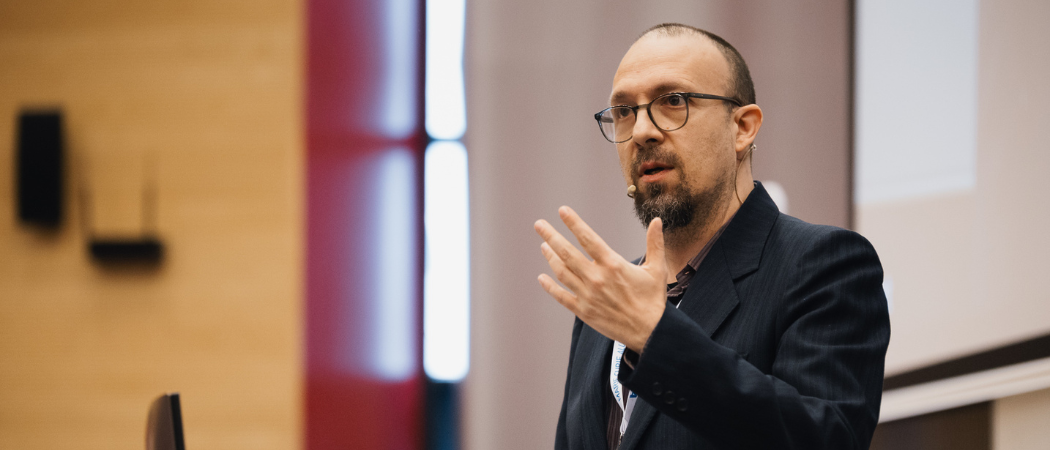The Commission proposal of a €10.5 billion researcher training budget for 2028-34 falls well short of demand, as fund records 65% spike in applications

Gian Maria Greco, chair of the Marie Curie Alumni Association (MCAA). Photo credits: MCAA
The alumni of the EU’s Marie Skłodowska-Curie Actions (MSCA) researcher training programme are urging policymakers to raise the scheme’s 2028–34 budget, not to the proposed €10.5 billion but to €25 billion. This is necessary to meet demand from Europe’s two million researchers.
“This expanding and increasingly specialised workforce, especially in critical areas like AI, quantum computing and green technologies, desperately needs more support. The proposed FP10 budget simply isn't enough to meet this growing demand,” said Mostafa Moonir Shawrav, executive director of the Marie Curie Alumni Association.
Currently, the MSCA’s €6.6 billion seven-year budget is only able to fund a small percentage of the best-scoring applicants. In 2021-22, for example, financing all the excellent proposals it received would have cost €6 billion alone. Adjusted for the whole programme, this unmet demand equals €21 billion.
And the demand keeps growing. The MSCA’s 2025 call for posdoctoral researcher grants received 17,058 proposals, 65% more than last year and the biggest number for any call since the start of EU Framework Programmes 40 years ago. Of these, only 1,650 projects will be funded, or around 9.5%.
The surge in applications is perhaps unsurprising. As the Trump administration cut science funding and cracked down on academic freedom in the US earlier this year, EU leaders invited scientists to come to Europe, advertising MSCA's postdoctoral grants as an entry point.
More talent is what Europe needs, but this also means the sector's demands are likely to keep growing. The continent’s workforce has increased by 45% since 2013 to 2.15 million full-time researchers, with ever more scientists looking for training and mobility opportunities, Shawrav told Science|Business. At the same, inflation chips away at the real value of the fund each year.
The €10.5 billion budget proposed by the European Commission is already an increase compared to the current MSCA programme. But alumni point out that within the EU Framework Programme, in which MSCA is rooted, its share is actually shrinking, from 8% in Horizon 2020 to a proposed 6% in Horizon Europe 2028-34.
This proposal is now being considered by EU governments and the European Parliament, but it will take a few years for them to negotiate all the details. The alumni hope in the process they can sway member states and MEPs to increase the MSCA’s funds.
A permanent MSCA?
The budget is only part of the alumni association’s wider vision for the next MSCA. It is also urging policymakers to turn the MSCA into a more permanent EU funding body to ensure its lasting continuation. Today, the MSCA is managed directly by the Commission, with the programme extended every seven years under each new EU financial framework. While this arrangement works well, researchers want to ensure it can be protected in times of political instability.
They also want to ensure the EU does not introduce top-down policy-driven programming to the MSCA, which until now has been fully bottom-up, letting scientists define their own research topics.
Related articles
- Has the European Commission listened to its advisors on FP10?
- Horizon Europe budget to double, but €68B will remain in Competitiveness Fund
The Commission had considered introducing top-down calls to the MSCA as soon as 2025, but this plan was quickly shot down by the member states, as the research community rallied against the changes.
However, the wording of the new Horizon Europe legislation again leaves the doors wide open to political steering of the MSCA’s funds “in specific thematic priorities, types of research and innovation institutions, or geographical locations.”
The alumni believe this goes against the core mission of the MSCA that has made the programme successful in the first place. “Imposing predefined topics and research lines from above, even in the name of enhancing competitiveness, risks undermining precisely the qualities that have made the MSCA so successful in fostering that very competitiveness,” said Gian Maria Greco, chair of the alumni association.





 A unique international forum for public research organisations and companies to connect their external engagement with strategic interests around their R&D system.
A unique international forum for public research organisations and companies to connect their external engagement with strategic interests around their R&D system.